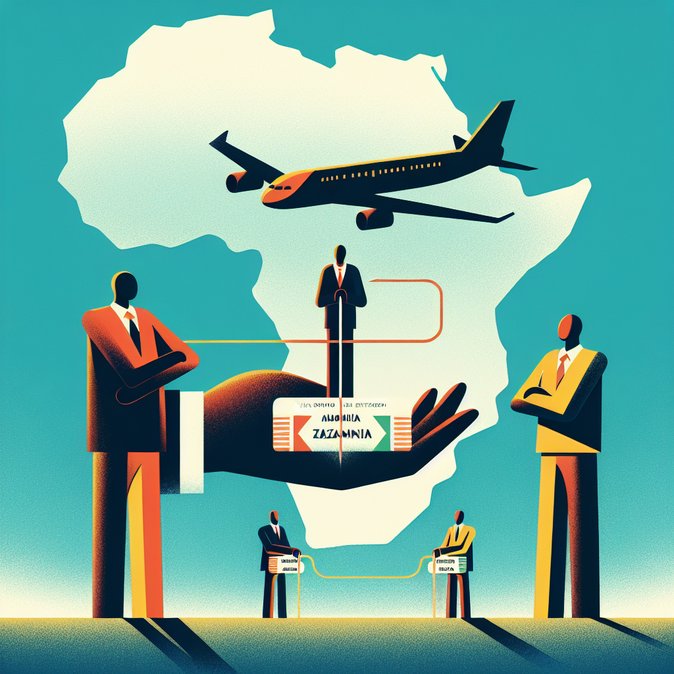
The U.S. Department of State has quietly broadened its controversial visa-bond pilot program, adding **Mauritania, São Tomé & Príncipe and Tanzania** to an earlier October expansion that already covered Malawi, Zambia and The Gambia. The policy—first launched in 2020 and revived under the current administration—requires selected B-1/B-2 visitors from countries with high overstay rates to post bonds of US$5,000, US$10,000 or US$15,000 as a condition of visa issuance.
According to an internal cable summarized in a State Department news alert on October 24, consular officers began collecting bonds for the three newly designated countries on **October 23**, with implementation for Malawi and Zambia having started August 20 and for The Gambia on October 11. Travelers must pay the bond via DHS Form I-352 through Pay.gov and enter or leave the United States only through Boston-Logan, JFK International or Washington-Dulles airports.
The department says the pilot is intended to deter overstays and encourage timely departure, citing DHS’s FY 2024 Entry/Exit Overstay Report. Critics counter that the measure disproportionately affects family visitors and small-business travelers, creates liquidity hurdles, and may drive tourism dollars elsewhere. Immigration attorneys note the bond does **not guarantee visa issuance** and warn that unauthorized third-party facilitation of payments is non-refundable.
For companies hosting visitors from the six countries, the advice is to budget extra time for consular appointments, ensure bond funds are ready, and prepare invitation letters spelling out travel itineraries and compliance commitments. Sponsors must also track refund timelines: bonds are automatically returned if the traveler departs on time, never uses the visa, or is denied entry at the port of entry.
The program remains temporary, but observers expect it to be folded into a larger fee-for-compliance model if overstay data show improvement. Stakeholders have until year-end to submit comments on the pilot’s effectiveness as the administration weighs next steps.
According to an internal cable summarized in a State Department news alert on October 24, consular officers began collecting bonds for the three newly designated countries on **October 23**, with implementation for Malawi and Zambia having started August 20 and for The Gambia on October 11. Travelers must pay the bond via DHS Form I-352 through Pay.gov and enter or leave the United States only through Boston-Logan, JFK International or Washington-Dulles airports.
The department says the pilot is intended to deter overstays and encourage timely departure, citing DHS’s FY 2024 Entry/Exit Overstay Report. Critics counter that the measure disproportionately affects family visitors and small-business travelers, creates liquidity hurdles, and may drive tourism dollars elsewhere. Immigration attorneys note the bond does **not guarantee visa issuance** and warn that unauthorized third-party facilitation of payments is non-refundable.
For companies hosting visitors from the six countries, the advice is to budget extra time for consular appointments, ensure bond funds are ready, and prepare invitation letters spelling out travel itineraries and compliance commitments. Sponsors must also track refund timelines: bonds are automatically returned if the traveler departs on time, never uses the visa, or is denied entry at the port of entry.
The program remains temporary, but observers expect it to be folded into a larger fee-for-compliance model if overstay data show improvement. Stakeholders have until year-end to submit comments on the pilot’s effectiveness as the administration weighs next steps.











